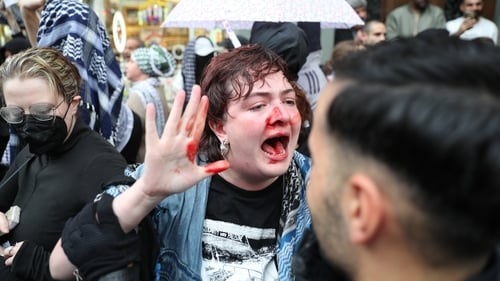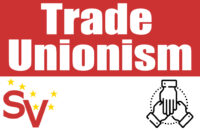A month ago, the police assault on Kitty O’Brien, an Irish activist attending a pro-Palestine demonstration in Berlin, made the news nationally and internationally. It was another reminder of the repression and violence the German state employs against Palestine solidarity. Often racialised and steeped in Islamophobia, the German anti-Palestine drive is to be observed through a lens wider than merely writing it off as an aberration.
While it is true that the commitment to supporting Israel is cited as Germany’s Staatsräson, such a tendency does not exist as an aberration or an outlier, but as a natural complement to imperialism.
When in 1967 the German police murdered Benno Ohnesorg at a protest, a columnist in Die Zeit wrote that “it is a senseless task to try to make sense of the senseless death of Benno Ohnesorg.” Neue Ruhr Zeitung’s line was that “there is not a single argument that could ascribe any meaning whatsoever to the death of Benno Ohnesorg.”
None of this, of course, was true. The state violence in Germany then, as now, went hand in hand with its remilitarisation. The same teeth they show in Berlin are the teeth they show at the borders of Germany and the EU, and the teeth they show in West Asia, arming Israel and having it do “their dirty work”. “Twenty-five years late, and in Sinai, Bild finally won the battle of Stalingrad,” wrote Ulrike Meinhof in 1967; the German state and media still wage one continuous imperialist war through their proxies, through their industry, and through the literal mobilisation of the European Union.
It is this project that the government coalition in Dublin wants to draw the 26 Counties into, marching into a future where not only are Irish troops to be sent into imperialist wars, but where we are also forced to sever every thread of meaningful solidarity we have. Solidarity is not within the class interest of capital; it is an obstacle to its domination. Solidarity breeds class consciousness: solidarity teaches us about connected struggles and their core.
Solidarity also teaches us where our power is: in exercising our ability to withhold labour, to enforce our sovereignty that originates from us, not from abstractions or ideas, and to turn the voice of protest into the force of resistance.
We should be consistently reminded that the hard power of police and military stems from the same source as the soft power of German culture-washing—financing social movements, campaigns and causes in the West under the flag of imperialist leftism and exclusive bourgeois solidarity.
The normalisation of German cultural institutions, the art industry, and even the German political party foundations in the Irish public discourse needs serious reconsideration. Such normalisation is commonplace in Irish left spaces: criticism of this tendency can and should open a space for political education and understanding of imperialism, rather than be an exercise in moralist positioning.






